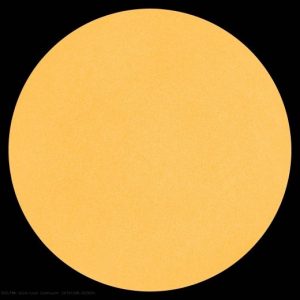Another [sun] spotless day on the sun.
Spaceweather.com reports that today we surpassed the largest number of spotless days (270) of the previous 2008 Solar Minimum cycle. The current spotless streak stands at 33 days and is quite possibly on its way to surpass the previous longest streak of this minimum at 36 days. And you have to go back to 1913 to find a year that had more spotless days (311)!
The bad news: the Solar Minimum could deepen as many scientists have calculated minimum may not occur until April 2020. You might be wondering: when is the next Solar Maximum? That’s forecast to be July 2025. Both the minimum & maximum forecasts have a +/- 6-month error.
How has the historic Solar Minimum impacted your radio listening? I know it’s impacted my motivation to set-up my solar telescope for solar observation.
Guest Post by Troy Riedel


The NOAA forecast has a +/- margin of error of six months so we could be at the deepest part of the minimum right now.
Shortwave broadcast DX is still happening especially if the listening post is located in an electrically quiet area. I watch daily SFI and K-Index here… https://www.solarham.net/index.htm . A slight elevation of SFI above 70 and a flat-lined K-Index can indicate better than usual SW propagation. Coronal holes seem to be important players in propagation during the minimum. Soon after they face the Earth the solar wind can kick up a bit with beneficial but temporary results. With solar radiation so low right now, I suspect that local changes in geomagnetic fields may be be affecting SW propagation here in California’s earthquake country.
A [sun] spotless record! I’m sure astronomy sites are having a field day making titles for this bit of news! 🙂
Here’s hoping we experience a sunspot or two again. It would be great to have a little extra helping of propagation.
Thanks, Troy!